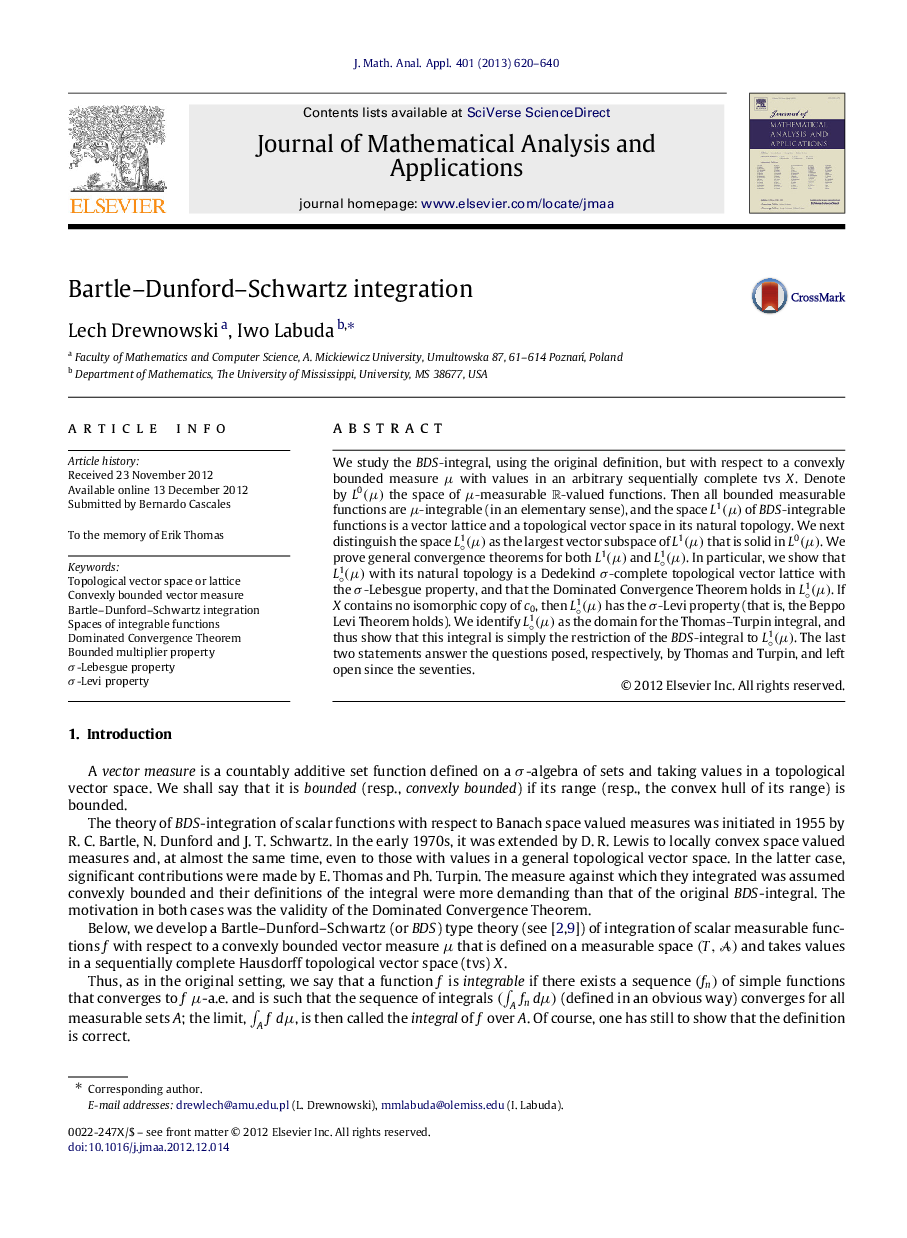| Article ID | Journal | Published Year | Pages | File Type |
|---|---|---|---|---|
| 4616789 | Journal of Mathematical Analysis and Applications | 2013 | 21 Pages |
Abstract
We study the BDS-integral, using the original definition, but with respect to a convexly bounded measure μ with values in an arbitrary sequentially complete tvs X. Denote by L0(μ) the space of μ-measurable R-valued functions. Then all bounded measurable functions are μ-integrable (in an elementary sense), and the space L1(μ) of BDS-integrable functions is a vector lattice and a topological vector space in its natural topology. We next distinguish the space Lâ1(μ) as the largest vector subspace of L1(μ) that is solid in L0(μ). We prove general convergence theorems for both L1(μ) and Lâ1(μ). In particular, we show that Lâ1(μ) with its natural topology is a Dedekind Ï-complete topological vector lattice with the Ï-Lebesgue property, and that the Dominated Convergence Theorem holds in Lâ1(μ). If X contains no isomorphic copy of c0, then Lâ1(μ) has the Ï-Levi property (that is, the Beppo Levi Theorem holds). We identify Lâ1(μ) as the domain for the Thomas-Turpin integral, and thus show that this integral is simply the restriction of the BDS-integral to Lâ1(μ). The last two statements answer the questions posed, respectively, by Thomas and Turpin, and left open since the seventies.
Keywords
Related Topics
Physical Sciences and Engineering
Mathematics
Analysis
Authors
Lech Drewnowski, Iwo Labuda,
